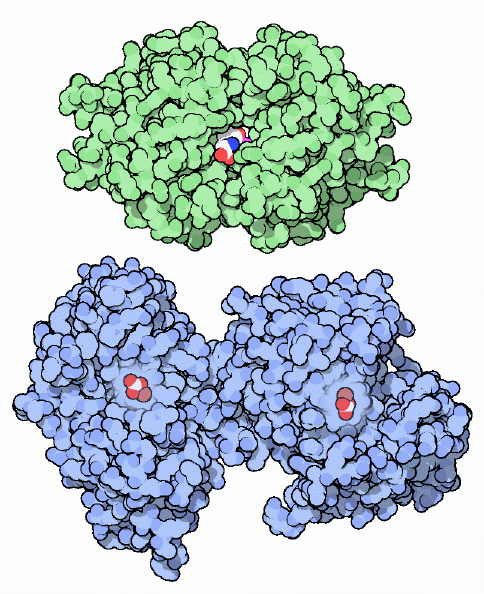Albumin - what is, definition and levels - normal, low, high

What is Albumin and Definition
Albumin - the most abundant protein in PLASMA. Albumin transports various molecules through the BLOOD and helps sustain the blood’s oncotic pressure, keeping fluid from seeping into the tissues. Albumin molecules are larger than the molecules it transports, allowing those substances, such as electrolytes and hormones, to pass through the walls of the blood vessels while the albumin molecules remain within the blood vessels. Albumin is among the numerous plasma proteins the LIVER produces. Albumin is also available as a blood product for transfusion. Blood banks obtain it by separating it, using a cell separator, from donated whole blood or plasma.
Albumin Levels - normal, low, high
The blood of a healthy adult contains 3.5 to 5.0 grams per deciliter (g/dL) of albumin, which makes up about 2 percent of the blood’s total volume. A low serum albumin level (hypoalbuminemia, decreased concentration of albumin in the blood) often indicates liver disease such as CIRRHOSIS or kidney disease such as GLOMERULONEPHRITIS. Hypoalbuminemia also occurs with serious BURNS. An elevated albumin level (hyperalbuminemia, increased concentration of albumin in the blood) occurs less commonly and often signals extended DEHYDRATION or DIABETES INSIPIDUS, a disorder of the ADRENAL GLANDS.
See also AGING, CHANGES IN THE BLOOD AND LYMPH THAT OCCUR WITH; BLOOD PRESSURE; BLOOD TRANSFUSION.